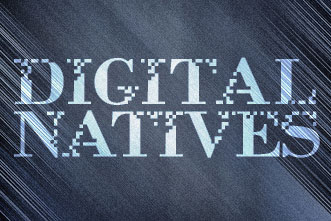“By age 20, children will have spent 20,000 hours online — the same amount of time a professional piano player would have spent practicing.” — Dr. Urs Gasser (Author: Born Digital)
Students graduating from high school this year are at the leading edge of the digital native generation. Information technology has been dominant in their lives like no other generation. They may have been given a Nintendo Game Boy to play with in the crib. GPS satellite navigation systems have always been available. Ubiquitous broadband internet access has always been available on every computer. They don’t know a world where you can’t just ask Google the answer to any question.
There was a time when being a Gen-X church leader was intriguing and maybe even cool, but our time is fading. (Remember all those “Gen-X” ministries in the late ’90s … seems funny now.) Our attention needs to turn to how we can pass along the message and community of Jesus to the digital natives coming up around us. Gen-X church leaders are digital immigrants who were born before the existence of pervasive information technology and adopted it to some extent later in life. We need to seek to understand and serve this next generation in how their relationship to technology has shaped them. Here are some observations on how I believe we need to be shaped by the realities of the digital natives:
- Local? How 20th Century! Digital natives are used to pursuing information and assistance from around the world. They’ve become experts in locating the solution they need from wherever it comes from. Why would a digital native come and listen to a speaker at your church when he or she can access the best teaching from anywhere in the world?
- Which “Profile” is Your True Self? Digital natives have been in and out of virutal worlds since an early age. Crafting and curating various online “personas” is a survival skill of this generation. What impact will this crafting of online personas have on complex pastoral issues?
- Vulnerability on Steroids. Radical openness is a hallmark of digital natives. Of course, you don’t have it all together … we’ve searched your name and found those pics from that college party online. Digital natives are going to expect leaders to be open and honest about who they really are. What seems like “over-sharing” today will be the norm in the future.
- No Inactive Spectators. Digital natives are creators of content … they reflexively craft digital content and share it through social networks. They don’t want to just sit and receive content from you … they want to engage in the process of crafting what is happening. They are also used to being vocal critics of what others are doing through online reviews and comments. We need to find ways to leverage the participatory nature of content production to drive spiritual development. Come and sit in a class and learn from an “expert” isn’t going to work anymore. [Check out Forrester’s Social Technographics Data to explore this idea a little more.]
- Massive Information Processing Skills. Digital natives often ‘graze’ bullet points of articles and don’t often read the full article. They surf from one YouTube clip to another, and then jump through 10 Wikipedia articles on related topics. Digital natives process information very quickly. What place does the traditional 35-minute message have in a world where people skip to the next online video after 60 seconds because it wasn’t moving along fast enough?
- Flexible Online Collaboration Culture. Digital natives will work in increasingly decentralized environments that focus on results and not command and control hierarchy. The church can be seen by people living in that sort of environment as an antiquated and inefficient way to impact the world. Will our leadership structures reflect the post-corporate reality that digital natives are creating?













